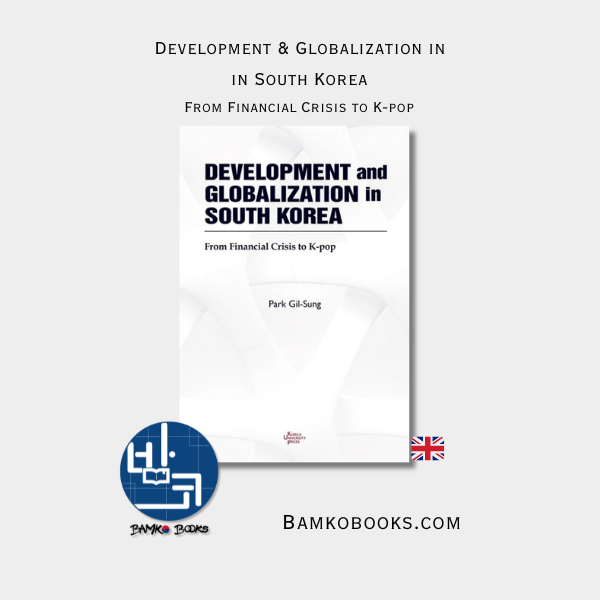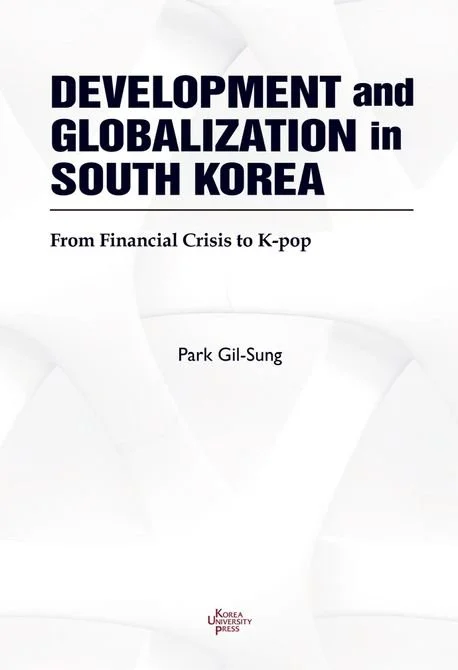<KR>
The growth of the Republic of Korea?s wealth and democracy throughout the 60s, 70s, and 80s have been well researched and documented.
However, much less is written about the extremely difficult and eventful process as the nation transformed itself into one of the world?s leading technological and cultural leaders since then.
The book provides keen insight into the developmental histroy of the Republic of Korea as it willingly and sometimes reluctantly embraced the phenomena of globalization, spanning from the 1997 financial crisis to the international phenomenon of K-pop. Not only are the nation?s policy choices documented in detail but also the overwhelming and arduous socio-cultural transformations endured by its people, as the nation moved on from being “coerced” by globalization to one that “leads.” The result is a fascinating comparative account of economic and social development in the late 20th and early 21st century as well as a compass for what side effects there may be as societies embrace globalization.
<ENG>
The growth of the Republic of Korea?s wealth and democracy throughout the 60s, 70s, and 80s have been well researched and documented.
However, much less is written about the extremely difficult and eventful process as the nation transformed itself into one of the world?s leading technological and cultural leaders since then.
The book provides keen insight into the developmental histroy of the Republic of Korea as it willingly and sometimes reluctantly embraced the phenomena of globalization, spanning from the 1997 financial crisis to the international phenomenon of K-pop. Not only are the nation?s policy choices documented in detail but also the overwhelming and arduous socio-cultural transformations endured by its people, as the nation moved on from being “coerced” by globalization to one that “leads.” The result is a fascinating comparative account of economic and social development in the late 20th and early 21st century as well as a compass for what side effects there may be as societies embrace globalization.
<FR>
La croissance de la richesse et de la démocratie de la République de Corée dans les années 60, 70 et 80 a été bien étudiée et documentée.
Cependant, on écrit beaucoup moins sur le processus extrêmement difficile et mouvementé que la nation s'est transformée en l'un des leaders mondiaux de la technologie et de la culture depuis lors.
Ce livre donne un aperçu de l'histoire du développement de la République de Corée, car elle a adopté volontairement et parfois avec réticence le phénomène de la mondialisation, depuis la crise financière de 1997 jusqu'au phénomène international de la K-pop. Non seulement les choix politiques de la nation sont-ils documentés en détail, mais aussi les transformations socio-culturelles accablantes et ardues de son peuple, alors que la nation passe de « contrainte » par la mondialisation à « chef de file ». Il en résulte une comparaison fascinante du développement économique et social à la fin du XXe siècle et au début du XXIe siècle, ainsi qu'une boussole des effets secondaires que pourraient avoir les sociétés qui s'engagent dans la mondialisation.
목차
Preface
Acknowledgements
PART I. MAKING GLOBALIZATION
Chapter 1. Korea’s Globalization: Two Tales of Challenge and Opportunity
Chapter 2. Aftermath of the Financial Crisis: Restructuring, Betrayal, and Response
Chapter 3. History of Globalization: From Enthusiastic to Coercive and Mimetic globalization
Chapter 4. Theoretical Framework: Globalization and Development
PART II. ECONOMIC AND SOCIAL RESTRUCTURING
Chapter 5. Corporate Reformulating: Governance Structure and Workplace
Chapter 6. Civil Society Responding: The Case of Minority Shareholders’ Movement
Chapter 7. Social Conflict Exploding
Chapter 8. Identity, Authority, and Trust Reshaping
PART III. GLOBALIZATION OF K-POP
Chapter 9. Manufacturing Creativity: Production, Performance, and Dissemination of K-pop
Chapter 10. From B2C to B2B: Selling Korean Pop Music in the Age of New Social Media
Note
References
Index
















